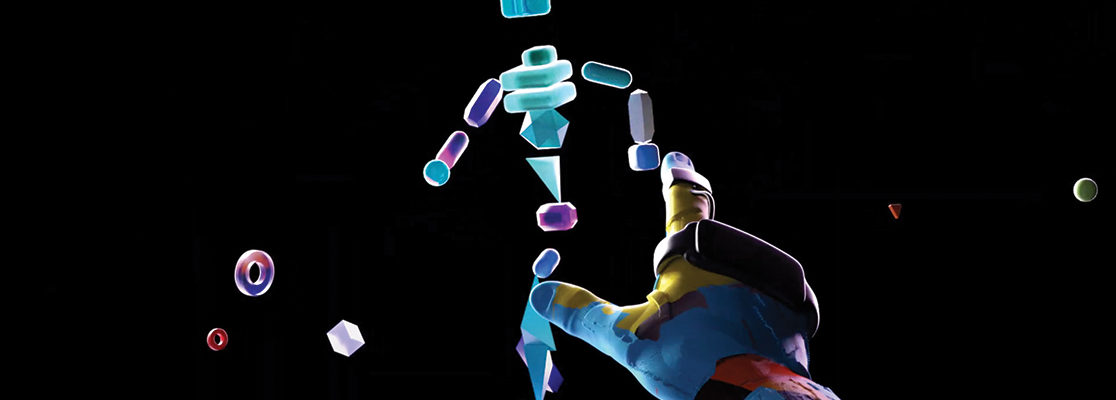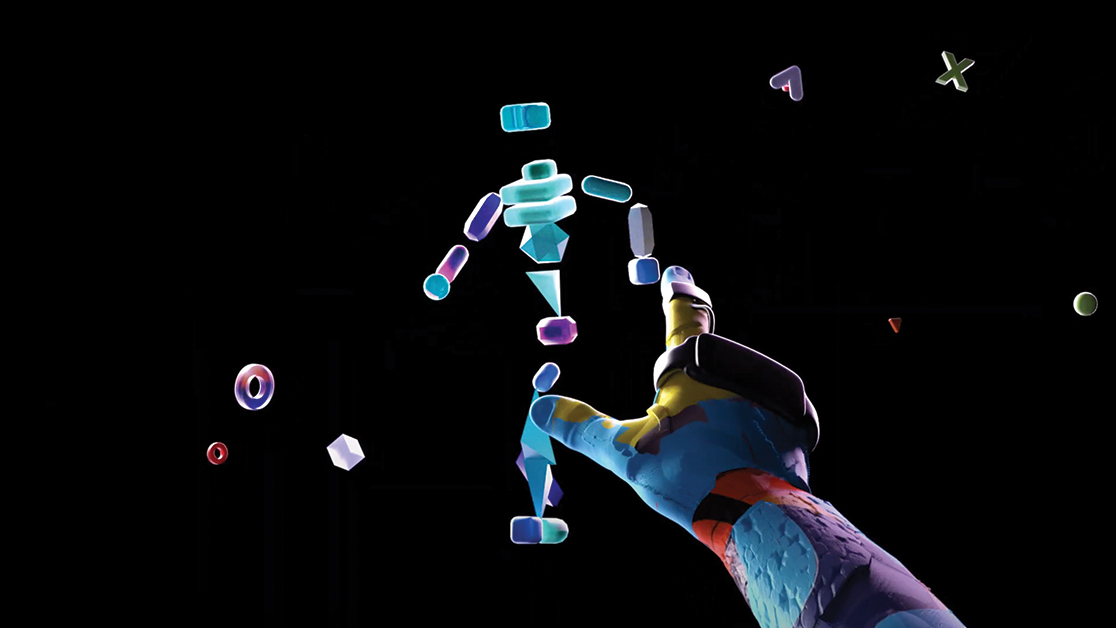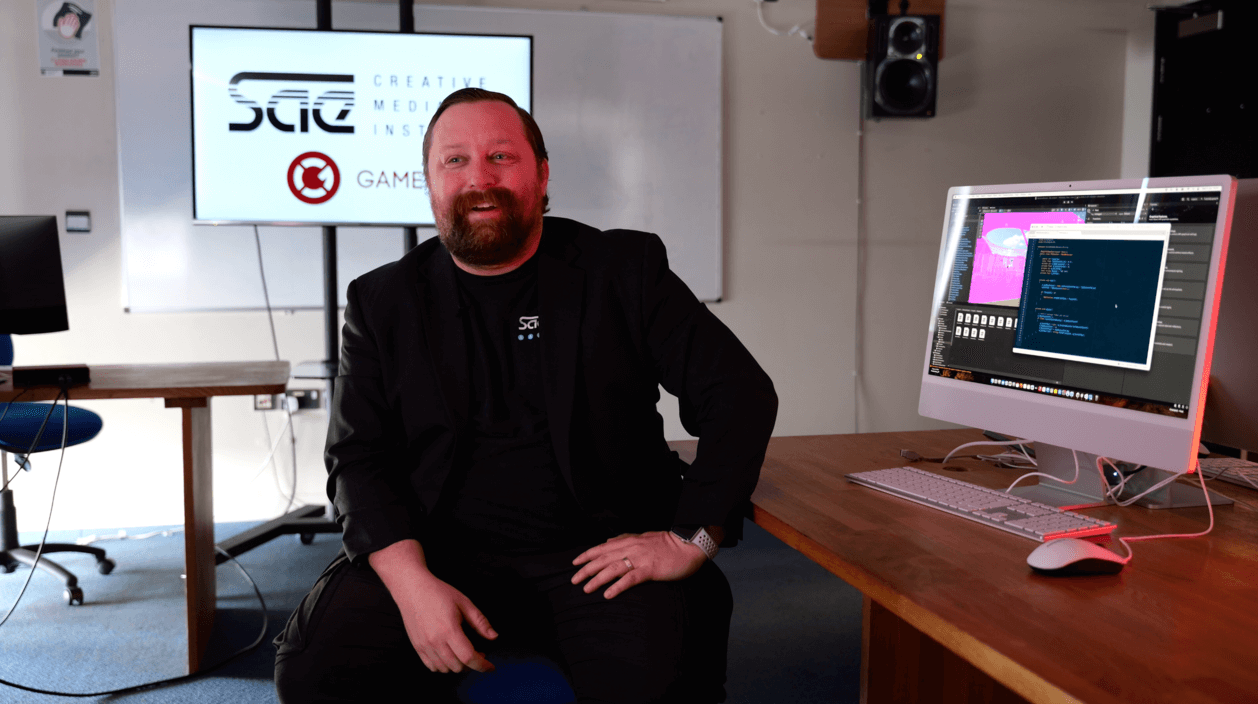Geoff Hill is SAE’s Games Programme Leader and has led the way in developing and implementing our curriculum through the UK and Australia.
Based in our London campus, he’s an expert in gaming and a well-qualified academic and educator. In our interview, Geoff discusses the power of gaming and why it’s the perfect format for collaboration and creativity.
Interested in exploring your love of games and game design with SAE? Then get in contact to find out more about our courses…
What’s the power of a gamer?
So the power of a gamer is to communicate experiences, to go on adventures, to engage in play, and allow us to do those really important things that are part of the human experience.
Who is the course aimed at?
The Games courses at SAE are for anyone who wants to be part of creating games and communicating experiences.
You might have an idea that you’ve got for a game that you want to make or you want to create, perhaps a visual element, that really striking scene, or you want to create that experience and communicate an emotion or bit of history.
We then go into the collaborative nature of games and work on creating them in a simulated studio environment.
At the end of the course, you can go on to specialise and target your learning.
This allows you to go deeply into an area of game development that you’re really interested in, really passionate about, or something that you really want to focus your career on.
Are there opportunities for close collaboration?
The opportunities to collaborate in games are absolutely huge.
Games are one of those perfect collaborative disciplines as it takes in so many other disciplines in the creative arts field. You’ve got Game Design, Games Programming, Audio Production, all the Art and Animation assets.You’ve even got your marketing and promotion.
There’s this huge opportunity to collaborate because that’s how games are made and we work like this at SAE.
We focus on making sure that you can collaborate across disciplines in your game projects every trimester. We are constantly bringing in and supporting students with projects that are interdisciplinary and collaborative because that’s exactly how they are made in the industry.
We also regularly consult with industry to ensure that our programmes are meeting exactly what the sector needs in terms of current tools and processes.
What is the software and facilities available for students?
The software and facilities that we use here at SAE are industry standard. We’re using computers, software, and technology that are all appropriate, recommended, and used in the industry, including engines like Unreal Engine and Unity. We also use the current 3D modeling packages like Maya. We ensure that we are using the right tools to help our students into industry.
What is the type of expert support available to students?
The expert support and expertise available to all students is great.
We’ve got facilitators, lecturers, and support staff on our campuses and each of these experts has particular focus areas. You can communicate with lecturers from around SAE’s UK campuses to make sure that you’re getting the right expertise.
How is the game programme designed to equip students?
It is designed to equip students with everything they need to create those games and experiences. We start with foundational technical skills necessary to create the software and design the experiences. We then move into the collaborative nature of games, creating them in a simulated studio environment.
In the final year, students specialise in areas they are really interested in or passionate about.
STUDY Game Development at SAE
SAE offers two-year accelerated degree courses in growth creative media industries including Game Design, Game Art and Animation and Game Programming – all aimed at helping the next generation of creative professionals get ahead.
From our expert tutors to our cutting-edge computer labs, SAE’s degree will enable you to master a range of both technical and practical industry-relevant skills.


































